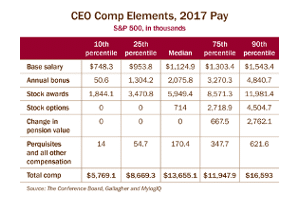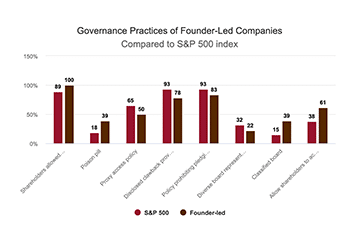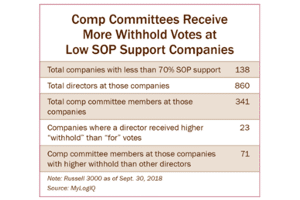Given the amount of expertise, judgment and skill required in hiring a new CEO — to say nothing of time — special retainers for leading a CEO search or executive transition used to be de rigueur. But no longer.
A survey conducted by TheCorporateCounsel.net asking if boards had paid a special fee for serving on a CEO search committee received only 14 responses, and among that sample, only 7% reported paying directors a fee. In the same vein, a 2016 study conducted by Equilar found 15 boards that had paid special committee fees, and only one explicitly tasked the committee with CEO search responsibilities.
A look through director compensation disclosures using MyLogIQ’s SEC filings intelligence service shows that CEO search committees with special fees were more common a decade ago than in recent years. Comparative data is difficult to come by given that companies don’t hire new CEOs on a regular basis. However, overall the data appears to paint a picture of special CEO search fees going the way of the dodo.




